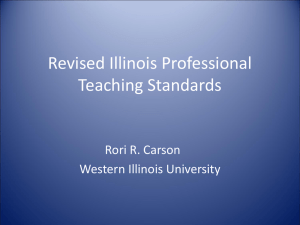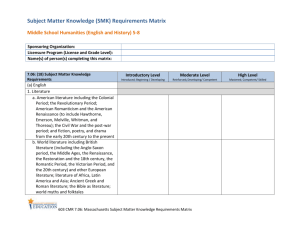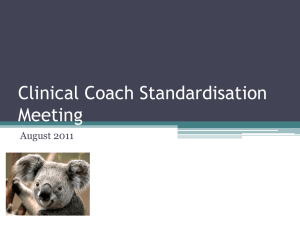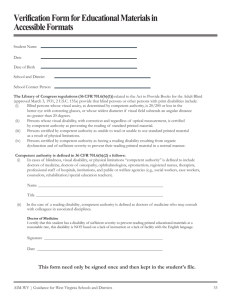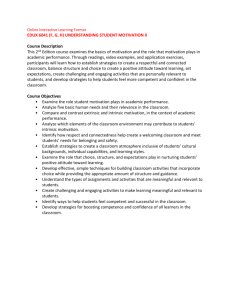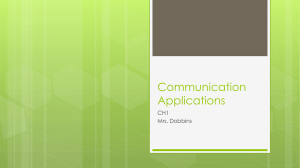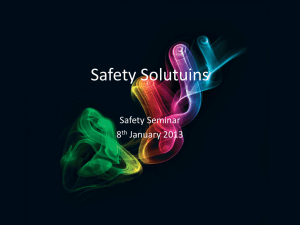(conditions of service of employees of the institute) regulations, 2014
advertisement
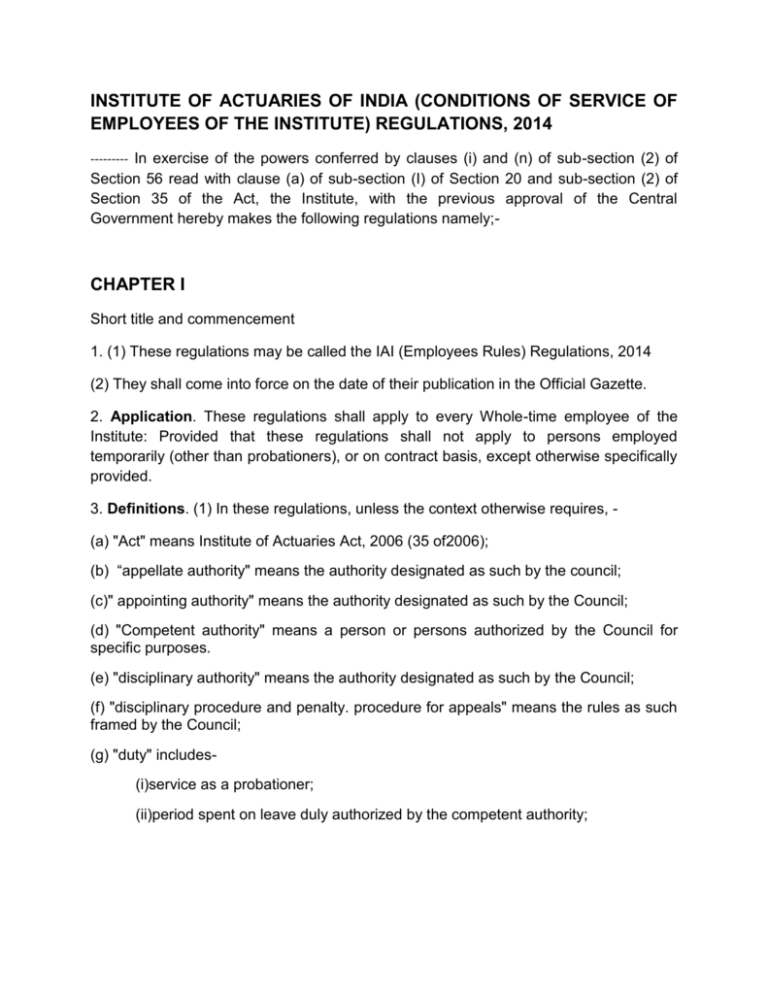
INSTITUTE OF ACTUARIES OF INDIA (CONDITIONS OF SERVICE OF EMPLOYEES OF THE INSTITUTE) REGULATIONS, 2014 --------- In exercise of the powers conferred by clauses (i) and (n) of sub-section (2) of Section 56 read with clause (a) of sub-section (I) of Section 20 and sub-section (2) of Section 35 of the Act, the Institute, with the previous approval of the Central Government hereby makes the following regulations namely;- CHAPTER I Short title and commencement 1. (1) These regulations may be called the IAI (Employees Rules) Regulations, 2014 (2) They shall come into force on the date of their publication in the Official Gazette. 2. Application. These regulations shall apply to every Whole-time employee of the Institute: Provided that these regulations shall not apply to persons employed temporarily (other than probationers), or on contract basis, except otherwise specifically provided. 3. Definitions. (1) In these regulations, unless the context otherwise requires, (a) "Act" means Institute of Actuaries Act, 2006 (35 of2006); (b) “appellate authority" means the authority designated as such by the council; (c)" appointing authority" means the authority designated as such by the Council; (d) "Competent authority" means a person or persons authorized by the Council for specific purposes. (e) "disciplinary authority" means the authority designated as such by the Council; (f) "disciplinary procedure and penalty. procedure for appeals" means the rules as such framed by the Council; (g) "duty" includes(i)service as a probationer; (ii)period spent on leave duly authorized by the competent authority; (h) Family" means the spouse, child or step child of the employee and is dependent on the employee but does not include a spouse who is legally separated from the employee; (i) "Institute" means the Institute of Actuaries of India constituted under section 3 of the Act; (j) "Pay" means the amount drawn by an employee as pay which had been sanctioned for a post held by him; (k) "Service rules' means the Institute of Actuaries of India (remuneration and certain other terms and conditions of service of the employees) Rules. 2014 as framed by the Council and includes any amendments thereto; (I) "service" includes the period during which an employee is on duty as well as on leave duly authorized by the competent authority, but does not include any period during which an employee is absent from duty without permission or overstays his leave, unless specifically permitted or condoned by the Competent Authority. (m) “ Special allowance” means an addition, in the nature of allowance , to the emoluments attached in consideration of the special nature of the duties attached to the post or required to be performed by the employee. (n) “Year” means a continuous period of twelve months commencing from 1st day of April, of a year and ending with 31st day of March of the next year. (2) AII words and expressions used herein and not defined in these regulations but defined in the Act shall have the meanings respectively assigned to them in the Act unless otherwise provided in the contracts of service. (3) For the purposes of these regulations. the terms 'he' and 'his' shall include "she" and "her" wherever circumstances warrant and singular shall include plural. CHAPTER II 4. Classification of employees (I) The employees of the Institute shall be classified as follows:a) Management Level b) Middle Level c) Junior Level d) Support Level (2) The number of posts, their classification, pay, age limit, education and other qualifications, period of probation, method of recruitment, composition of selection committee or departmental promotion committee shall be such as may be defined by the Council from time to time; (3) All appointments in, and promotion to, any class shall be made by the Competent Authority. CHAPTER III 5. Commencement of duty. The service of an employee shall be deemed to commence from the working day on which such employee reports for duty in any appointment covered by these regulations at the place and time intimated to him by the competent authority: Provided that if he reports in the afternoon, his service shall commence from the next following working day. 6. Notice for discontinuing or leaving the service. (I) An employee may resign or leave or discontinue his service in the Institute by giving to the competent authority notice in writing of his intention to leave or discontinue the service (2) The period of notice required shall be (a) In the case of employees of managerial post and above level, three months i.e. 90 days; (b) In the case of other employees, one month i.e., 30 days (3) In the case of failure by an employee to give notice in accordance with the provisions specified in sub-regulation (2) above, he shall be liable to pay to the Institute as compensation a sum equal to his basic pay for the period of unserved notice required under these regulations: Provided that such notice or the payment of such compensation may, by reasons to be recorded in writing, be reduced or waived by the President: Provided further that the employee may be allowed by the competent authority to set off any earned leave not availed of by him against the period of such notice. (4) Notwithstanding anything contained in sub-regulation (I), the resignation of an employee shall not be effective unless it is accepted by the competent authority. (5) The competent authority may refuse to accept the resignation from an employee, if,(a) disciplinary proceedings have been instituted against or are proposed to be instituted against that employee: (b) the employee is under an obligation to serve the Institute for a specified period which has not expired; (c) the employee owes the Institute any sums of money. Explanation: For the purposes of this regulations, disciplinary proceedings shall be deemed to be instituted against an employee,(a) if he/she has been placed under suspension under these regulations; or (b) any notice has been issued to him asking him to show cause why disciplinary proceedings should not be instituted against him; or (c) any charge-sheet has been issued to him under the regulations and shall be deemed to be pending till final orders thereon are passed by the Competent Authority. 7. Retirement (I) Except as otherwise provided in this regulation, every employee shall retire from service at the close of office hours on the last day of the month in which he attains the age of sixty years; Provided that an employee whose date of birth is the first of a month shall retire from service at the close of office hours on the last day of the preceding month on attaining the age of sixty years; Provided further that the Competent Authority may, if it is of the opinion that it is in the interest of the Authority to do so , direct an employee to retire on completion of fifty five years of age or at any time thereafter, on giving him three months’ notice or salary in lieu thereof; Provided further that an employee shall be permitted upon request to retire before the date of retirement specified in this sub-regulation either (a) on completion of twenty five years of service; or (b) on completion of twenty years of service, provided he has attained age of fifty; or (c) on completion of fifteen years of service, if he is incapacitated for further active service. (2) No employee shall normally be granted extension in service beyond the age of retirement of sixty years Provided that the Council of the Institute may grant extension in service beyond attainment of age 60 in exceptional cases for operational requirement. Such extension, if any, will not exceed one year at a time. Chapter IV 8. Maintenance of record of service. A record of service shall be maintained by the Institute in respect of each employee at such place or places and in such form or manner as may be determined from time to time by the Council. 9. Seniority of employees:- (1) An employee confirmed in the service of the Institute shall ordinarily rank for seniority in his grade according to his date of confirmation in the grade (2) An employee on probation shall ordinarily rank for seniority among the employees selected along with him in the same batch according to the ranking assigned to him at the time of his selection. 10. Promotion against sanctioned post. (1) All promotions of the employees shall be against vacancies in sanctioned posts declared by the Council and shall be based on merit, suitability and seniority. (2) An employee shall have to put in a minimum of three years of service in a post before he is normally considered for promotion to a post in the next higher grade; (3) In exceptional cases where the minimum number of years of service prescribed above has not been completed, an employee may be promoted to the next higher grade on the specific recommendation of the President and the approval of the authority. 11. Reversion of employee. An employee promoted from one grade to another may be reverted during the probationary period without notice by the Competent Authority after recording the reasons thereof. Chapter V 11. The admissibility of pay. allowances and other benefits (I) The pay, allowances and other benefits shall not be payable for a part of a month to an employee who leaves or discontinues his service without due notice during the month, unless such notice has been waived by the Competent Authority. (2) The pay, allowances and other benefits shall cease to accrue to all employee from the date:a) he ceases to be in service: or b) he is dismissed. removed or compulsorily retired from the service; or c) following the date on which he dies. (3) Where on an appeal or a representation by an employee, his removal, discharge or suspension from service is revoked after due process, the entitlement to allowance and other benefits shall accrue to him in terms of the order of revocation passed by the competent authority. 12. (1) The salary structure of employees and allowances, including any periodical revisions thereof, shall be fixed by the Council taking into account the employees' educational qualification, experience, expertise in respective field, proven track record and capabilities. (2) Confirmation: On completion of the probation period, the performance of the employee during the probation period shall be reviewed by the Competent Authority and on being found suitable for confirmation, the employee shall be issued a letter to that effect by the President for Management level and by Executive Director for middle level, junior level and support level. The probationary period may be extended by the competent authority once. 13. Annual Performance Review/ Increment /Bonus The process of review of annual performance and determination of any revisions in pay or payment of performance related bonus shall be as decided by the Council from time to time. Chapter VI – Leave 14. Kinds of leave Subject to the provisions of these regulations, the following kinds of leave may be granted to an employee,(a) Casual leave; (b) Earned leave: (c) Sick leave (d) Maternity leave; (e) Any other leave as may be specified by the Institute from time to time; 15. The number of days of leave, eligibility conditions and the process of leave management shall be as laid down by the Council from time to time. Chapter VII – Conduct, Discipline and Appeals 16. (1) The services of every employee shall be at the disposal of the Institute and the employee shall serve the Institute in its business in such capacity and at such place or places as he may, from time to time, be directed (2) Every employee shall at all times maintain absolute integrity and devotion to duty and shall conform to and abide by these regulations and procedures laid down by the Council and shall observe, comply with and obey all lawful orders and directions which may from time to time be given to him by any person or persons under whose jurisdiction, superintendence or control he may for the time being be placed. Every employee holding a supervisory post shall take all possible steps to ensure that the employee under his control /authority maintains absolute integrity and devotion to duty. (3) Every employee shall maintain the strictest secrecy regarding the Institute's affairs and shall not divulge, directly or indirectly, any information of a confidential nature coming into his possession while working for the Institute to anyone unless compelled to do so by judicial or other authority. or unless instructed to do so by the competent authority in the discharge of his duties. (4) Every employee shall serve the Institute honestly and faithfully and shall use his utmost endeavor to promote the interests of the Institute and shall show courtesy and attention in all transactions and dealings between other employees of other organization and the Institute. (5) No employee shall take active participation in politics or in any political demonstration. or stand for election as a member of a municipal council. district authority or any other local body or any legislative body while remaining in the service of the Institute. (6) No employee shall resort to, or in any way abet, any form of strike or participate in any violent, unseemly or indecent demonstration in connection with any matter pertaining to his conditions of service or the conditions of service of any other employee of the Institute; (7) No employee may contribute to the media (whether print, electronic or other), without the prior sanction of the President or without such sanction make public or publish any document, paper or information which may come to his knowledge in his official capacity. (8) No employee shall, except with the previous sanction of the President, publish or cause to be published any leaner book or any similar printed matter of which he is the author or deliver talk or lecture in any public meeting or otherwise: Provided that no such sanction would be withheld if such a broadcast or a contribution or a publication made by him either individually or as a member of a professional body is of a purely literary, artistic, scientific, professional, cultural, educational, religious or social character. (9) No employee shall accept, solicit, or seek any outside employment or office, whether stipendiary or honorary without the prior sanction of the President. 17. (1) Evidence before committee or any other authority Save as provided in sub regulation (2) below, no employee shall, except with the previous approval of the competent authority, give evidence in connection with any inquiry conducted by any person, committee or authority (2) Nothing in this regulation shall apply to any evidence given.(a) at any inquiry before an Authority appointed by the Central Government, a State Government, Parliament or a State Legislature; or (b) in any judicial inquiry; or statutory authority or (c) at any inquiry ordered by the competent authority. 18. Canvassing of non-official or outside influence No employee shall bring or attempt to bring any political or other influence to bear upon any employee in the Institute to further his interests in respect of matters pertaining to his service in the Institute. No appeal, petition or memorial shall be addressed by any employee to any outside authority. 19. Prohibition of private trade or employment in certain cases No employee shall undertake any part time work for a private or public body or a private person, or accept any fee, therefore, or engage in any commercial business without the sanction of the President who shall grant the sanction only when he is satisfied that the work can be undertaken without detriment to his official duties and responsibilities; Provided that the President may, as may be deemed fit, stipulate that any fees received by the official and other employee for undertaking the work shall be paid. in whole or in part to the Institute. 20. Acceptance of gift (1) An employee shall not solicit or accept any gift or permit any member of his family or any person acting on his behalf to accept any gift from a person having dealings with the Institute or from any other employee. Explanation - For the purposes of this regulation, a) an employee shall avoid accepting free transport, boarding, lodging or other service or any other pecuniary advantage or any other lavish or frequent hospitality from any individual or concern having official dealings with the Institute. b) a casual meal, lift or other social hospitality shall not be deemed to be a gift provided it is of insignificant value as decided by the President. 21. Demonstration No employee shall engage or participate in any demonstration which is prejudicial to the interests; of the sovereignty and integrity of India, the security of the State, friendly relations with foreign States, public order, decency or morality, or which involves contempt of court, defamation or incitement to an offence. 22. Joining association prejudicial to the interest of country No employee shall join, or continue to be a member of an association or body, the objects or activities of which are prejudicial to the interests of the sovereignty and integrity of India or public order or morality. 23. Subscription. No employee shall, except with the previous sanction of the competent authority, ask for or accept a contribution to or otherwise associate himself with the raising of any funds or other collections in cash or in kind in pursuance of any objective whatsoever. 24. Consumption of intoxicant drinks and drugs An employee shall – (a) not be under the influence of any intoxicating drink or drug while on duty and shall also ensure that performance of his duties at any time is not affected in any way by the influence of such drink or drug; (b) refrain from consuming, in a public place, any intoxicating drink or drug; (c) not appear in a public place in a state of intoxication; 25. Staff members arrested on criminal charge Any employee, who is arrested on a criminal charge or is detained in pursuance of any process of law, may, if so directed by the President in respect of employees at Management level and by the Executive Director in respect of the employees at middle management level, junior level and support level, be considered as being or having been under suspension from the date of his arrest, or, as the case may be, of his detention, up to such date or during such other period, as the President may direct. 26. Action on violation of conduct and discipline The Council shall frame procedure for taking appropriate action against employees indulging in acts of misconduct or indiscipline but not before giving such an employee a fair opportunity to present his case and a right to appeal. Chapter VII Miscellaneous 27. Working days and hours The number of working days and working hours of the Institute shall be as decided by the Council. 28. Traveling and halting allowance:- Traveling and halting allowances shall be paid to the employees according to such rates and on such terms and conditions as may be approved by the Council from time to time. 29. Deputation:- (1) No employee of the Institute may be deputed to serve under any other employer without the approval of the President who shall determine the duration of such deputation and the terms and conditions on which the deputation shall take effect, provided that no employee may be so deputed against his will. (2) Where the services of an employee of the Institute is placed at the disposal of any other employer, it shall be a condition of such a deputation that the other employer shall, during the period of such deputation, bear the entire cost of the services of the employee as may be indicated in the order of deputation. 30. Miscellaneous - In respect of any matters for which no specific provision made in these regulations, the decision of the Council in such matters shall be final and binding on all concerned.
